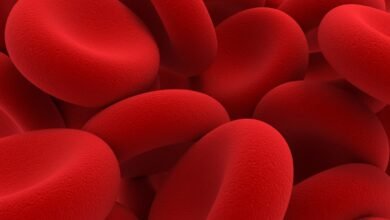Nephrogen’s AI Gene Therapy Aims to Reverse Kidney Disease

▼ Summary
– Demetri Maxim’s mother developed kidney failure when he was seven and later received a transplant, but he inherited her Polycystic Kidney Disease (PKD).
– Maxim became determined to find a cure for PKD after a 2021 Nature study showed CRISPR technology could reverse the disease in mice.
– He founded Nephrogen in 2022 to develop an AI-driven delivery system for getting gene-editing drugs directly to kidney cells.
– Nephrogen has created a delivery mechanism claimed to be 100 times more efficient than current FDA-approved methods and plans clinical trials for 2027.
– Maxim intends to participate in the clinical study himself, as he experiences significant symptoms and risks from PKD that could require dialysis.
At just seven years old, Demetri Maxim watched his mother’s kidneys fail, forcing her onto a dialysis regimen that required hospital visits four times weekly. Her blood had to be filtered by machine because her own organs could no longer perform. Two years later, she received a kidney transplant. While the procedure gave her a more normal life, it didn’t end the family’s ordeal with kidney disease. Maxim discovered he had inherited the same genetic disorder, Polycystic Kidney Disease (PKD), from his mother.
Chronic Kidney Disease affects roughly one in seven people across the United States, and genetic conditions like PKD account for about 10% of these cases. Since high school, Maxim has been driven by a single goal: finding a cure not only for himself, but for millions of others facing similar diagnoses.
A turning point came in 2021, when a study published in Nature Magazine demonstrated that CRISPR technology could reverse PKD in mice. At the time, Maxim was completing graduate work in computational biology at Stanford University and conducting kidney research under Professor Vivek Bhalla. He became convinced that gene therapy held the key to reversing PKD in humans, but a major obstacle remained: how to deliver gene-editing drugs precisely to the affected kidney cells.
To tackle this challenge, Maxim founded Nephrogen in 2022. The biotech startup leverages artificial intelligence and advanced screening techniques to engineer a specialized delivery system capable of safely transporting gene-editing therapies directly into diseased kidney cells. Nephrogen has since been selected as one of 20 finalists in Startup Battlefield at TechCrunch Disrupt 2025.
After three years of intensive development, Maxim reports that Nephrogen has engineered a delivery mechanism that is one hundred times more efficient at transporting medication to kidney cells than delivery methods currently approved by the FDA.
The startup’s next milestone involves advancing both its novel delivery platform and an internally developed drug into clinical trials, which Maxim expects to launch in 2027. To support this crucial phase, the company is currently raising a $4 million seed funding round.
Living with PKD himself, Maxim plans to enroll in the clinical study. He describes the daily reality of the condition: persistent back pain, frequent hospital visits, and medications that offer limited benefit. “You take drugs meant to slow the disease, but they don’t do much except make you urinate constantly,” he explained. There is also the constant threat that his kidney function could decline to the point of requiring dialysis.
For Maxim, Nephrogen’s work is not just professional, it’s profoundly personal. A successful treatment would mean a potential cure for his own PKD, and for countless others living with genetic kidney disorders.
Those interested in learning more about Nephrogen’s pioneering approach can hear directly from the team at TechCrunch Disrupt 2025, held in San Francisco from October 27–29. The event will feature startup pitches, expert-led workshops, and valuable networking sessions focused on innovation and business growth.
(Source: TechCrunch)





